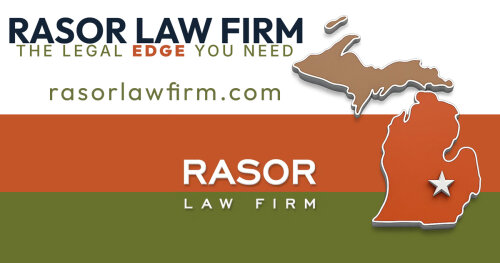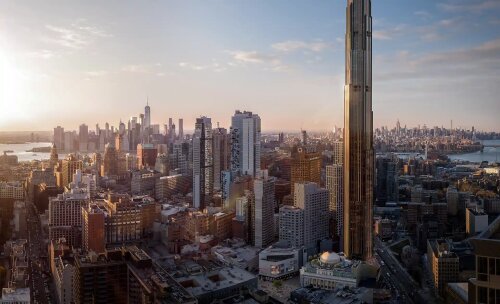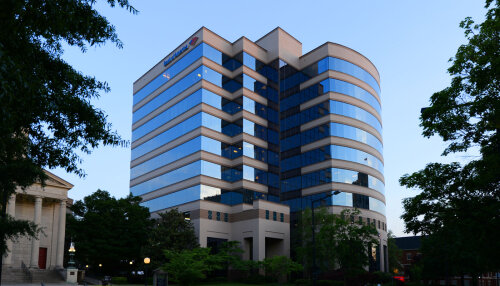Best Premises Liability Lawyers in Maryland
Share your needs with us, get contacted by law firms.
Free. Takes 2 min.
Or refine your search by selecting a city:
List of the best lawyers in Maryland, United States
About Premises Liability Law in Maryland, United States
Premises liability law in Maryland addresses the responsibility of property owners and occupiers when someone is injured on their property because of unsafe or hazardous conditions. This area of law mainly applies to incidents such as slips and falls, dog bites, injuries from faulty structures, or other accidents that occur due to negligence in maintaining a property. Victims may have the right to seek compensation for medical bills, lost wages, pain and suffering, and other damages if the property owner is found liable.
Why You May Need a Lawyer
Premises liability cases can be complex because determining liability often depends on numerous factors, including the visitor's legal status on the property (invitee, licensee, or trespasser), the specific circumstances of the incident, and the property owner's actions. You may need a lawyer if:
- You suffered an injury on someone else's property due to a hazardous condition.
- An insurance company is disputing your claim or offering an insufficient settlement.
- You are unsure about whether the property owner’s negligence caused your injury.
- The responsible party is denying liability.
- The incident involved a commercial or public property with multiple parties involved.
- You need assistance understanding your legal rights and the value of your claim.
Local Laws Overview
Maryland premises liability law has several unique aspects. The state's adherence to the contributory negligence doctrine means that if the injured party is found even slightly at fault for their own injury, they may be barred from recovering any compensation. Additionally, Maryland law distinguishes between different types of visitors, granting legal protection based on an individual’s status as an invitee, licensee, or trespasser. Property owners owe the highest duty of care to invitees, who are on the property for business purposes. Licensees, who have permission to be on the property for non-commercial reasons, are owed a lesser duty. Trespassers, unless they are children or certain exceptions apply, are owed the least duty.
Maryland law also requires that plaintiffs file their claim within three years of the date of injury (the statute of limitations). Property owners are generally not liable for open and obvious hazards that a reasonable person would have recognized and avoided.
Frequently Asked Questions
What is premises liability?
Premises liability is a legal concept holding property owners and occupiers responsible for injuries that occur on their property due to negligence or unsafe conditions.
Does the type of visitor affect my case in Maryland?
Yes, Maryland differentiates between invitees, licensees, and trespassers, with each group owed a different duty of care by property owners.
What is contributory negligence and how can it affect my claim?
Maryland follows the contributory negligence rule, so if you are found to be even one percent at fault for your injury, you may be barred from recovering damages.
What is the statute of limitations for premises liability cases in Maryland?
You generally have three years from the date of the injury to file a lawsuit for premises liability in Maryland.
What should I do immediately after being injured on someone’s property?
Seek medical treatment, document the scene and your injuries, file a report with the property owner or manager, gather witness information if possible, and consider contacting an attorney as soon as possible.
Are property owners always liable for injuries on their property?
Not necessarily. Liability depends on whether the owner was negligent, failed to maintain safe conditions, or failed to warn about known dangers. Your legal status on the property also matters.
Can I sue for a slip and fall accident in Maryland?
Yes, if you can prove that your slip and fall was caused by the property owner’s negligence and that you were lawfully on the property, you may have a valid claim.
Can children trespassing on property still recover damages?
Maryland recognizes exceptions for children, especially in cases involving an attractive nuisance, such as a swimming pool, that may entice children to enter the property.
Do I need to prove the property owner knew about the hazard?
Yes, you typically need to show the owner knew or should have known about the dangerous condition and failed to take reasonable steps to fix it or warn visitors.
What compensation can I recover in a premises liability case?
If successful, you may recover damages for medical expenses, lost income, pain and suffering, emotional distress, and certain other related costs.
Additional Resources
If you need more information or assistance, the following resources may be helpful:
- Maryland Judiciary - Provides general information about state courts and how to file civil claims.
- Maryland Attorney General’s Office - Offers consumer information and guidance on legal rights.
- Maryland State Bar Association - Directory of licensed attorneys in Maryland.
- Local Legal Aid Societies - Provide legal assistance to those who qualify based on income.
- Bureau of Consumer Protection, Office of the Attorney General - Assistance with certain property concerns.
Next Steps
If you believe you have a premises liability claim in Maryland, consider the following steps:
- Seek immediate medical attention if you have not already done so to ensure your health and create records of your injuries.
- Document everything related to the accident, including photographs, written descriptions, and witness statements.
- Report the incident to the property owner, manager, or appropriate authority as soon as possible.
- Consult with a qualified premises liability attorney who is experienced in Maryland law to discuss your rights, collect evidence, and determine the best course of action.
- Avoid making official statements to insurance companies before speaking to legal counsel to protect your interests.
Remember, taking timely and appropriate steps can help protect your rights and improve your chances of a successful premises liability claim.
Lawzana helps you find the best lawyers and law firms in Maryland through a curated and pre-screened list of qualified legal professionals. Our platform offers rankings and detailed profiles of attorneys and law firms, allowing you to compare based on practice areas, including Premises Liability, experience, and client feedback.
Each profile includes a description of the firm's areas of practice, client reviews, team members and partners, year of establishment, spoken languages, office locations, contact information, social media presence, and any published articles or resources. Most firms on our platform speak English and are experienced in both local and international legal matters.
Get a quote from top-rated law firms in Maryland, United States — quickly, securely, and without unnecessary hassle.
Disclaimer:
The information provided on this page is for general informational purposes only and does not constitute legal advice. While we strive to ensure the accuracy and relevance of the content, legal information may change over time, and interpretations of the law can vary. You should always consult with a qualified legal professional for advice specific to your situation.
We disclaim all liability for actions taken or not taken based on the content of this page. If you believe any information is incorrect or outdated, please contact us, and we will review and update it where appropriate.
Browse premises liability law firms by city in Maryland
Refine your search by selecting a city.















